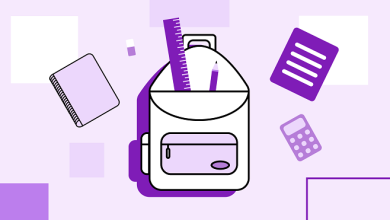The Ultimate Guide To Adulting for Young Adults 01/08

One of adulthood’s core elements is understanding and taking control of one’s financial situation. This includes the ability to budget, save, and foresee future financial needs. With the rising cost of living and the complexities of financial products, it becomes essential to educate oneself on effective money management. This article serves as your go-to guide for essential adulting skills, offering advice on personal finance, career development, time management, mental health, and more. Below, we delve into each of these areas to ensure you’re well-equipped to handle the responsibilities of adulthood.
Navigating the Job Market: Building a Career Path
Securing a career path is more than just finding a job; it’s about establishing a trajectory for growth and satisfaction. It begins with identifying your interests and strengths and then pursuing opportunities that align with those. Drafting a compelling resume and cover letter, honing interview skills, and networking are vital components of a successful job search.
Continual professional development is essential in today’s fast-paced job market. Young adults should be open to learning new skills, whether through formal education, online courses, or on-the-job training. Staying adaptable and embracing a mindset of lifelong learning can distinguish you in competitive fields.
Mentorships can play a significant role in career advancement. Finding a mentor within your chosen field can provide guidance, open doors to new opportunities, and offer insights that only experience can teach.
Whether you’re navigating your financial responsibilities, including services like brake services near me, or investing in your mental health, remember that each step you take is an investment in a more secure and fulfilling future. Scheduling your brake services early can prevent more problems from arising. This helps control spending.
Understanding Financial Responsibility: Budgeting and Saving
Financial literacy is the foundation of adulthood. Knowing how to create a realistic budget that reflects your income and living expenses is the key to financial freedom. This involves monitoring your spending habits, identifying areas where you can cut back, and sticking to a plan that allows you to save for both short-term and long-term goals.
Saving is an essential habit that can help cushion you against unexpected expenses and plan for larger purchases like a home or car. It can be challenging to put money aside, especially when just starting, but even small, regular contributions to a savings account can add up over time.
Managing bills is another crucial aspect of financial responsibility. Regular expenses, from rent to utility bills, require timely payments to maintain a good credit score and avoid penalties. Services like the Metro PCS pay bill as guest online platform simplify this process, allowing for convenient payment without the need for an account.
Mastering Life Skills: Cooking, Cleaning, and Time Management
Adulting encompasses the ability to look after oneself and one’s living space. Cooking is a fundamental skill that saves money, boosts health, and provides a sense of accomplishment. Beginners can start with simple recipes and gradually tackle more complex dishes.
Cleaning and organizing living spaces not only create a more pleasant environment but also help maintain personal wellness. Establishing a regular cleaning schedule can simplify the task and make it less daunting.
Time management is critical in balancing work, personal responsibilities, and leisure. Identifying priorities, making to-do lists, and allocating time effectively can minimize stress and ensure important tasks aren’t overlooked.
The Importance of Mental Health and Work-Life Balance

Mental health is as crucial as physical health, yet it’s often overlooked in the hustle of daily life. Young adults should prioritize their mental well-being by recognizing stressors and finding healthy coping mechanisms, such as exercise, meditation, or hobbies.
Maintaining a balance between work and personal life is vital for long-term happiness and success. Setting boundaries, like limiting after-hours work emails and making time for friends and family, can improve overall quality of life.
It’s essential to recognize when to seek help, whether it’s for dealing with anxiety, depression, or any other mental health issue. Support can come from professional counselors, support groups, or trusted individuals within one’s network.
Self-care should not be an afterthought. By regularly allocating time for relaxation and activities that they enjoy, young adults can recharge and prevent burnout.
Altogether, effectively managing adulthood requires a balance of practical skills, responsible financial planning, and a commitment to personal well-being. Overall, the journey of adulting is ongoing, and the skills you cultivate now will benefit you for a lifetime.





